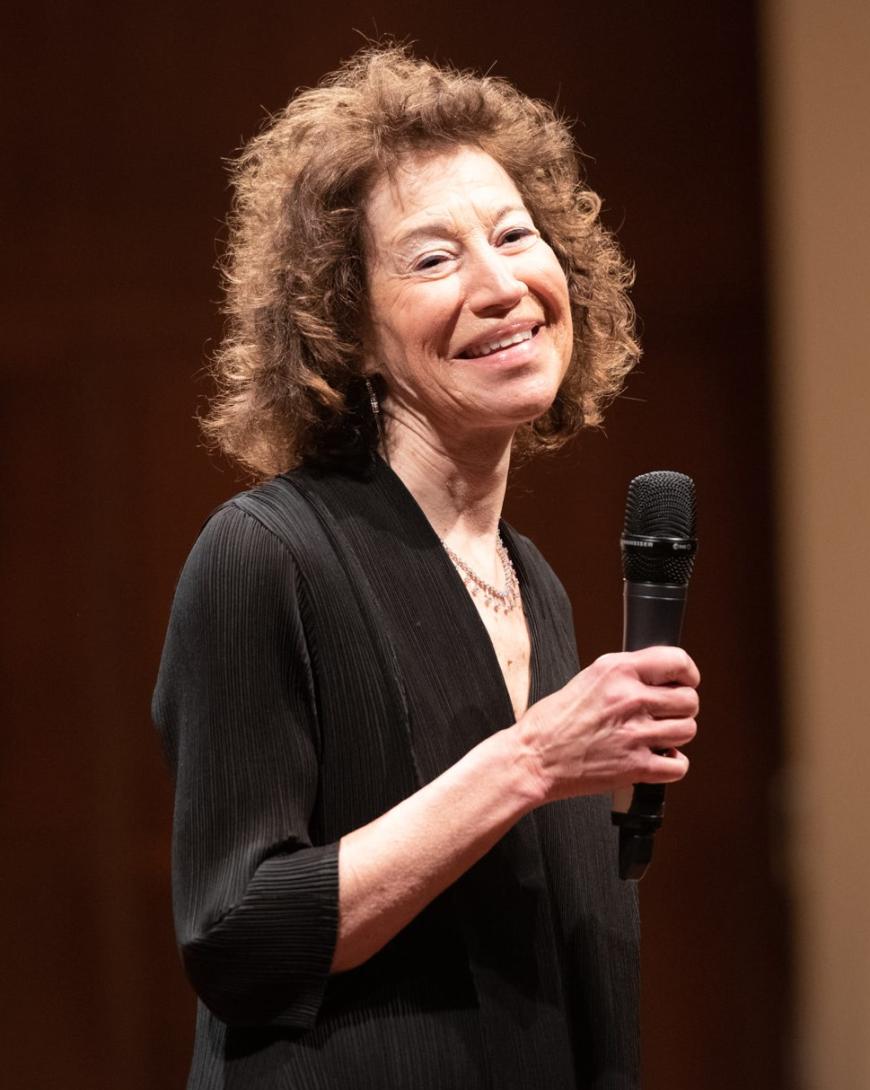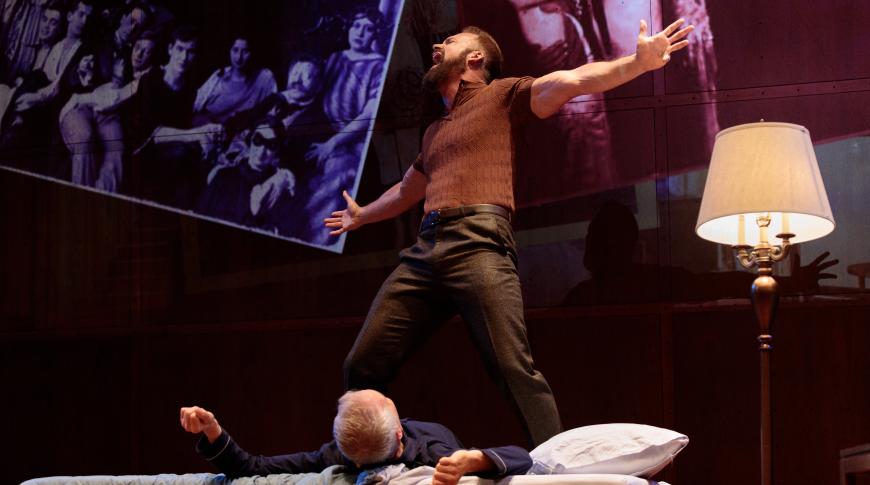
In sitcoms, low-budget “bottle episodes” — shot with a small cast on one stage — are often the most creative. In this sense, Seinfeld has a surprising amount in common with the Holocaust opera Another Sunrise, the first act of the Jake Heggie double bill commissioned by Music of Remembrance and presented on Wednesday at San Francisco’s Presidio Theatre. The opera, from 2012, is economical, but you’d never guess it from the impact it achieves.
The tight monodrama, starring soprano Caitlin Lynch as the Jewish memoirist Krystyna Żywulska, dramatizes the writing of I Survived Auschwitz. Krystyna refers to a husband, a “good life,” but we see her, at 4 a.m., utterly alone: pacing, raging, remembering what happened, and struggling to tell it.

It’s an unusually sharp survival narrative. In her preconcert remarks, Music of Remembrance founder Mina Miller spoke of the importance of not reducing survivors to stereotypes of sainthood or martyrdom; it’s with similar feeling that Krystyna remarks, “A survivor is not a hero; a survivor is a survivor.” The harmonies, too, are knowing. As the women in the cattle car realize they’ve arrived at Auschwitz, the orchestral writing turns conspicuously conventional. We know where this is going.
The ultimate irony, of course, is that we can’t find the words for these horrors. At one point, Krystyna sings “words” with a melisma so long that the syllable becomes a meaningless vocalise. This moment personifies the opera’s power: More than any one memorable melody or texture, what’s striking is the way the music and text work together to keep the listener oriented (if not comforted). Krystyna sings, after a long episode in a single key, of erasing her identity; the final line, “Nothing exists from her past as of today,” cadences not in the expected home key, or even the alternative “deceptive” arrival, but a step down, in a distant key area. Consider the past obliterated.
Equally as a singer and actor, Lynch carried the show, her performance so full-bodied that you could forget the stage held just one singer and sextet (players from the Seattle Symphony, conducted by Joseph Mechavich). A decade after its premiere, then, why is this opera, which so easily tells a difficult and important story, not more well known? Heggie is one of the most famous contemporary opera composers, not only in the Bay Area, where he lives (and once worked, in public relations, for both Cal Performances and SF Opera), but across the globe. And it’s not that his other work is easy. Dead Man Walking (2000), one of the most-performed new operas by any American composer, is about a convicted murderer on death row and is probably the most emotionally excruciating show I’ve seen.

On Wednesday, unexpected levity came with the 2007 opera For a Look or a Touch. Librettist Gene Scheer, who also wrote Another Sunrise, here adapts the journal entries of Manfred Lewin (bass-baritone Ryan McKinny), a gay Jewish man murdered at Auschwitz. Actor Curt Branom costarred as his lover, Gad.
It figures that Branom, who was a principal in San Francisco’s long-running Beach Blanket Babylon, would have no difficulty emoting to the heavens. Wooden writing, too, contributes to Gad’s drag-ish air, which doesn’t serve the story’s tragedy (Manfred, heartbreakingly, nearly lived). But camp does create an ideal foil for the quiet dignity of Manfred’s poetry, as sung by his ghost. In one scene, Gad mouths along, and we realize he’s read the journals that many times since losing his lover so many years ago.
The opera is at its best, though, when the characters are happy. In the lively segment “Golden Years,” the couple sweeps across the stage, sharing rollicking reminiscences of nights on the town; even the orchestra gets to join in on the fun. As McKinny’s character croons an old song, “Dance with me. … Let’s not miss out on a chance for love right now,” we remember that before the lovers were arrested “for a look or a touch,” before they perished or survived, they lived.




